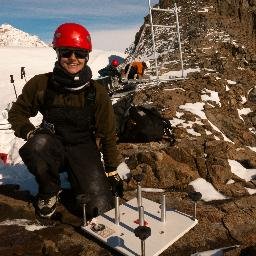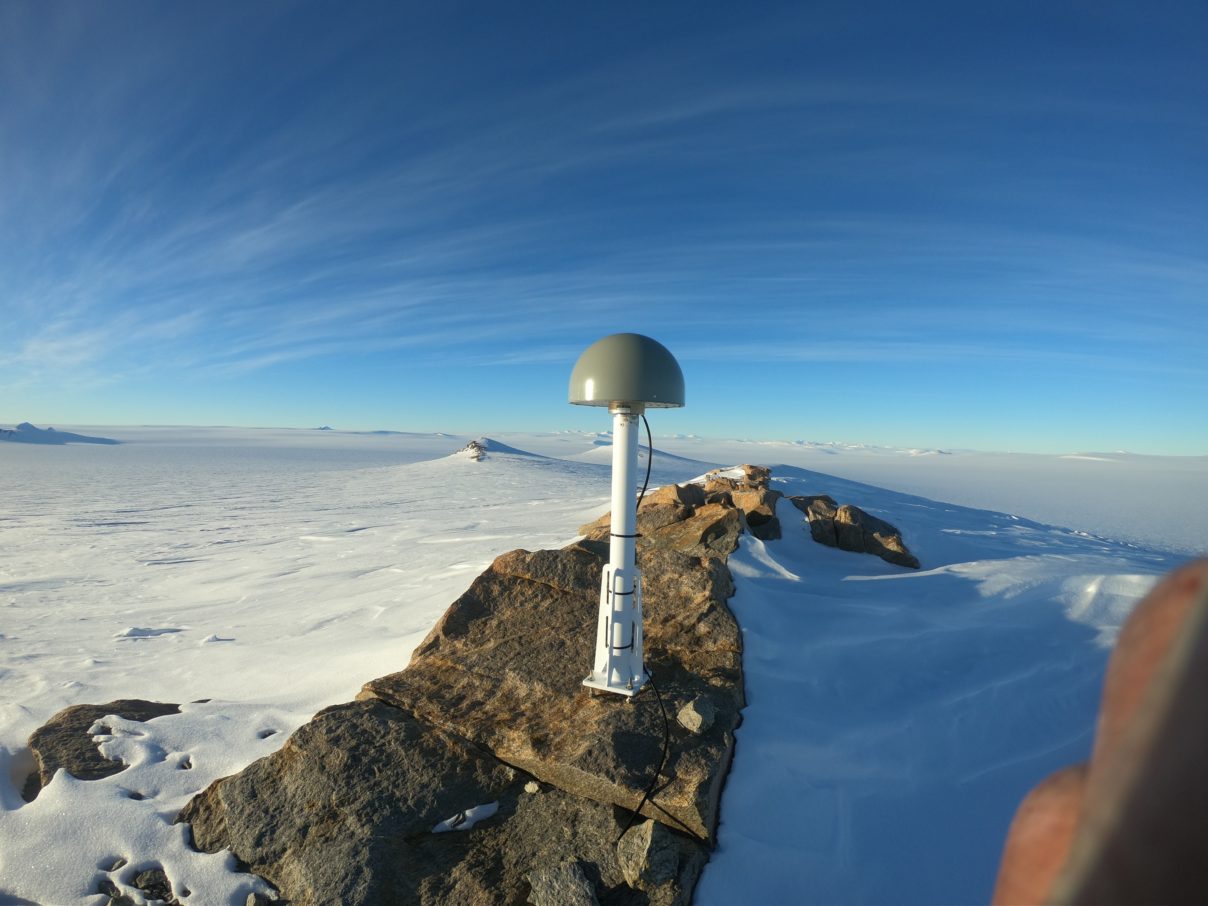Professor Pippa Whitehouse receives SCAR Medal for Excellence in Antarctic Research

Tell us about your work
I study how and why the Antarctic Ice Sheet is changing, both now and in the past, and the impact of those changes on global sea level. My expertise lies in computer modelling, but I collaborate with people who collect field data which provides insight on how the ice sheet has changed in the past and is continuing to change today. By comparing my model output with the data, we are able to home in on the computer simulations that are most realistic and hence improve our understanding of the key factors driving ice sheet change.

Congratulations on being awarded the medal. What does this award mean to you?
Being awarded the SCAR Medal for Excellence in Antarctic Research was a complete surprise! As a scientist you tend to focus on the things that you don’t know yet, the work still in progress and the unanswered questions. We are less good at reflecting on our achievements, and I am incredibly grateful to the people who nominated me and took the time to articulate my successes. I have always made time to discuss my research with others, especially those who are starting out in research, so my sphere of influence is large, and this is how I have made an impact on the field – by spotting the questions that need to be addressed and supporting those who then pursue them. The medal is a nice confirmation that this has been the right approach to take.
Why are you so passionate about your area of research?
So many aspects of science come together in Antarctica – the ice sheet, the climate, the ocean, the ecosystems, and the land buried beneath the ice – you have to know a little bit about all of them to be able to understand the bigger picture and make progress on your chosen area. This makes the research continually interesting and very collaborative. And of course, Antarctica is changing so fast. It is unusual to be able to study changes to the Earth that are happening so quickly, and while this is very clearly a terrible situation, it is a real privilege to be able to have the opportunity to study those changes.
How did you get into your area of research?
Before working on Antarctica, I studied how the sea level has changed over centuries and millennia, trying to piece together how the great ice sheets that once existed across Scandinavia and Canada contributed to sea-level rise following the last ice age. But there was always a missing piece to the puzzle – we didn’t know what had been happening to Antarctica over this period, whether it had also been melting and contributing to sea-level rise. In 2009 I was lucky enough to be employed as a researcher on a project to tackle this question, based in Durham’s Department of Geography. I have been here ever since and over this time have had the privilege of seeing the department become a world-leading hub of Antarctic research.
How does your research influence the way you teach Geography students?
I guess Geography students are sometimes surprised to be taught by a woman who works in Antarctica, but this is totally normal for me, and so I make it normal for them. Whatever their background, I make it clear that they too could work in polar science – given the breadth of the research that needs to take place there really is a role for everyone.
Tell us about a day in the life of a Professor in the Department of Geography
We balance our time between research, teaching, and admin. For me, a typical day might involve checking the status of the instruments I have deployed in Antarctica and passing on any instructions to the field team, meeting with postgrads or postdocs to hear updates and provide feedback on their research, maybe delivering an undergraduate lecture – making it as interactive as possible to keep both me and the students on our toes – and checking in with the range of initiatives that I head up as the department’s Equality, Diversity and Inclusivity (EDI) lead, such as our First Generation Scholar scheme or an event to signal that the department is a safe and welcoming space for the LGBTQ+ community. There is never a dull moment!
Find out more
- We are a world-leading centre of geographic education, ranked 15th in the QS World University Rankings by Subject 2022. Feeling inspired? Visit our undergraduate and postgraduate webpages to find out more about studying with us.
- Visit our Department of Geography webpages to learn more about our award-winning colleagues.
- If you would like to find out more about Professor Pippa Whitehouse and her work, visit her profile.
- Find out more about the SCAR Medal for Excellence in Antarctic Research
- If you’d like to share your story or insights into your work, visit our Submit a blog or vlog page to learn more.
